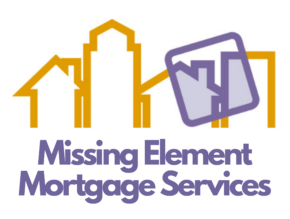Are you ready to become a homeowner? Here’s some first-time buyer mortgage advice to get you started.
Here are some of the most common questions we get asked by first time buyers…

How Mortgages Work
- A mortgage is a loan or security you take out from a lender over a number of years
- A mortgage is a type of secured loan, which means it’s secured against a property – usually the property you want to buy with the mortgage
- Using a property as security for a loan means that the lender can repossess it if you don’t keep up the mortgage payments
How do I get a mortgage as a first-time buyer?
Buying a property can be a daunting process, especially when you don’t know how long it will take.
Our step-by-step guide explains the route to getting the keys to your new home, and gives a rough idea of the timeframes involved.
Bear in mind, each property transaction is different and your journey to owning a home may take less, or more time, than outlined here.
1. Finding the right property and making an offer as a first-time buyer?
This stage of the home-buying process depends on how long it takes you to find a home you can afford that ticks all your boxes – or at least most of them.
Applying for a Decision in Principle will give you an indication of how much you may be able to borrow. It’s best to do this before you start house hunting, so you know you’re looking at properties you can afford.
It’s important to take your time and research your chosen area, to ensure you make the right choice.
Once you’ve found a property, the next step in England, Northern Ireland and Wales is to make an offer, typically through an estate agent. The estate agent should confirm when you’ll hear back from them.
In Scotland, you must instruct a solicitor who will help you prepare a bid for the property. As you can become legally committed to buying the property when your bid is accepted, you need to ensure that you have a Decision in Principle and are ready to proceed with a mortgage application.
2. Formally applying for a mortgage as a first-time buyer?
Once you’ve had an offer accepted on a property, you can apply to turn the Decision in Principle into a potential mortgage offer.
In most cases, it typically takes up to a couple of weeks – from completing an application to receiving a formal mortgage offer. However, in some circumstances, it could take longer.
The process involves detailed checks of your finances, and the lender will conduct its own mortgage valuation on the property you want to buy.
3. Conveyancing – 6-12 weeks
You’ll need to appoint a solicitor or licensed conveyancer to handle the legal aspects of the property purchase.
If there are no issues or hold-ups, the conveyancing process can take around 6 weeks. But it could take a few months, particularly if you end up in a ‘chain’ transaction.
A property chain is when there are a number of transactions that need to happen at the same time. For example, if you’re buying a home from someone, and they are buying another place to move into – it can create a chain of buyers and sellers that need to move at the same time.
Your solicitor or licensed conveyancer will conduct searches with the local council and other authorities to check whether there are any concerns that might affect the property’s value, or your enjoyment of it.
4. Property survey – 2-3 weeks
It’s a good idea to have your own survey of the property carried out to flag any potential problems. This is different from a mortgage valuation, which is carried out for the lender’s use only.
The survey itself should only take a few hours. Most surveyors will then produce a report within a couple of weeks before sending it to you.
There are several types of surveys offering different levels of property inspection:
- RICS Condition Report – the most basic type of survey
- RICS HomeBuyer Report – a more detailed inspection of the inside and outside of the property
- RICS Building Survey – the most comprehensive type of survey
In Scotland, sellers must also provide a Home Report, containing an energy performance certificate, a survey and a property questionnaire. Once you or your solicitor has checked this, you can decide whether to make a bid.
If your bid is accepted, contract details will be worked out. Your solicitor or licensed conveyancer will then exchange letters, known as ‘conclusion of missives’ with the seller’s solicitor. Once this process is completed, the deal is legally binding. In England, Wales and Northern Ireland, this isn’t the case until contracts are exchanged.
5. Exchange of contracts to completion – 1-4 weeks
Once you have your mortgage offer and your solicitor or licensed conveyancer is happy with the results of searches, their enquiries of the seller and the legal title to the property, you’re ready to exchange contracts (although please note the process is different in Scotland).
If you’re in a property chain, the other buyers and sellers have to be ready too. If not, there may be a delay.
Your solicitor or licensed conveyancer will exchange contracts with the seller’s conveyancer, and you’ll hand over your deposit for the house. The agreement is now legally binding, and you’ll need buildings insurance in place at this point.
As part of exchanging contracts, a completion date will be agreed. The time it takes to complete is agreed between you and the seller. Completion dates are often set 2 weeks after exchange, but it could be as little as 1 day. There may, however, be hold-ups if a chain is involved.
On the date of completion, you should be able to pick up the keys to your new home.
– The FCA does not regulate solicitors, conveyancing, valuation and some forms of bridging finance
– For solicitors, conveyancers, and valuation we act as introducers only
